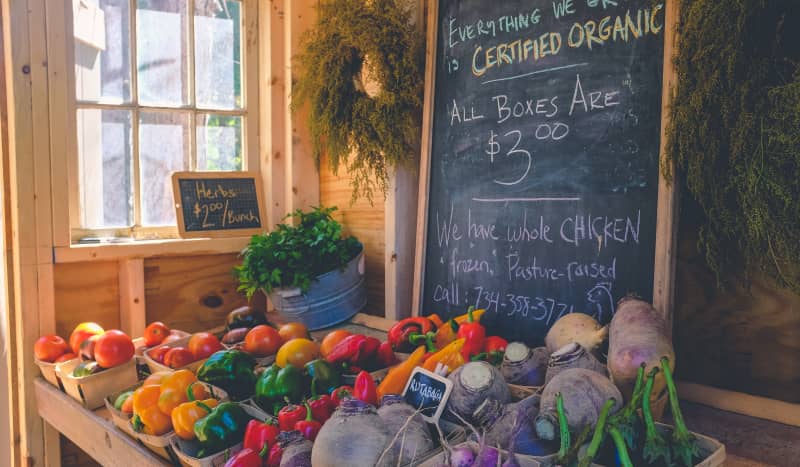
Organic foods
Organic foods have become increasingly popular of late. But what constitues 'organic' and is it really better for us?
What Does the Term 'Organic' Mean?
According to the Food Standards Agency (FSA) organic food is not significantly different from traditionally produced food, in terms of food safety and nutrition. All organic food must be produced according to European laws on production. Control bodies such as Department for Environment, Food and Rural Affairs (DEFRA) register certification bodies. Organic food therefore must originate from growers, importers and processors which have been registered and approved by certification bodies. Providing that 95% of the food on sale is organic, it will meet the criteria required to be considered such a food. This is because not all ingredients of a food can be organic. Some ingredients are simply unavailable in this form. If 70-95% of the ingredients are organic, the label and ingredients can state that the product contains organic materials but then must clearly state the total organic percentage of the ingredients.
Farming Protocols
To sell organic food, the land on which it was grown has to be farmed organically for usually two years. No fertilisers or pesticides can be used which are not approved. Labels on food must clearly also state the name of the certification body that the processor or packager is registered with. Labels must include a code number and potentially the name or trademark of the certification body.
So why would you choose to eat foods produced in this manner? Well being naturally fertilised and lacking potentially harmful pesticides are two good reasons. Naturally fertilised soil allows crops to absorb more nutrients than using manufactured fertilisers, herbicides and pesticides. This type of farming is also better for the environment and healthier for us to eat as there are only natural flavourings, colours and sweeteners used. It is also a more humane method to grow crops and breed animals as the farms have more space.
Organic and pet foods offer consumers a wide range of products to select from. This helps to give a good choice to help people to choose from the foods they like and not have to compromise on the natural approach to eating. There are around 1200 different products available at the moment. The FSA dont feel that there is a great amount of differences between these foods and regular or more traditionally produced items. With regards to that, it is simply a case of choosing foods that you like and that make up part of a healthy, well balanced diet. This can lead to sustainable weight loss and weight control when combined with taking regular physical activity.
Most Popular
- › Exercise Helps Weight Loss
- › The Risks of Dieting
- › Personal Training Workouts
- › Balanced Diets - Tips & Advice
- › Cholesterol Levels - High & Low - Explained
- › Getting Your Balanced Diet
- › The Effects of Alcohol on Your Health & Weight
- › Artificial Sweeteners as a Sugar Replacement
- › Home Gyms for Exercising
- › What is Calorie Counting? A Quick Guide
You may also be interested in...
Food Preservatives
Get the facts about food preservatives including those natural and bio additives. With information on a range of eating topics to ensure you are doing the right thingsSources Of Food
Sourcing food nutrition information for you. Save time and hassle with informative groups and vitamins basics that will help you with your new diet and weight loss programsEating the Right Foods
Discover how Eating the right diet foods can really help you combat overweight. With slimming you can speed up the results and get health back quicker...Food Nutrition Labels
Read more on food nutrition labels by checking our UK site. With advice and tips on drinks, recipes and more check slimming.co.uk to get the facts.Food Additives & E Numbers
Did you know that food additives and e numbers come in many different forms. From preservatives, colours and flavours like Aspartame to E-101
